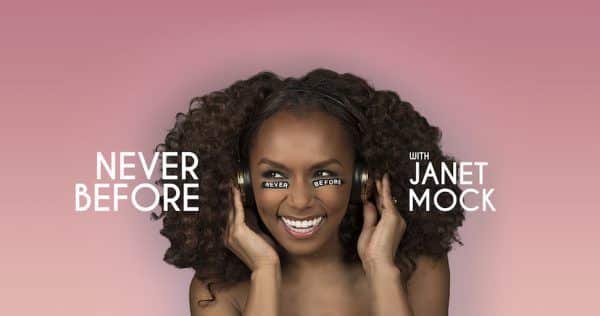Never Before with Janet Mock: Season 1 – Summary/ Review (with Spoilers)
How Oprah interviews like a therapist, Janet handles her guest like old friends from high school she is catching up with. Summary Over the course of a 10 episode season, Janet Mock, known mostly for her trans activism, but at her best when allowed to just be a pop-culture enthusiast, interviews a slew of newsmakers….

Spoiler Alert: This summary and review contains spoilers.
Additionally, some images and text may include affiliate links, meaning we may earn a commission or receive products if you make a purchase.

How Oprah interviews like a therapist, Janet handles her guest like old friends from high school she is catching up with.
Summary
Over the course of a 10 episode season, Janet Mock, known mostly for her trans activism, but at her best when allowed to just be a pop-culture enthusiast, interviews a slew of newsmakers. In one instance, it is a lot of people’s favorite politician: Maxine Waters. Another interview stars viral sensation Branden Miller (also known as Joanne the Scammer), who reveals the Joanne Netflix program in production. And alongside that is the legendary mother of Solange and Beyoncé Tina Knowles-Lawson, the matriarch of the Kardashian clan, Kris Jenner, alongside Gabourey Sidibe, Rowan Blanchard (of Girl Meets World fame), and Lena Dunham.
All of whom Janet approaches from one of two angles. Either as a curious fan trying to see past the public façade, or else like a high school friend who has long kept in touch on Facebook, but is relishing in getting face to face time. This can especially be seen by the fact there is little to no promotion of current or future projects in any of these interviews. Rather, Janet helps demystify her guest by letting them use their own words.
One prime example maybe Lena Dunham who is the producer of Never Before with Janet Mock and what many may consider the epitome of white feminism. Janet herself speaks on how she was at first uncomfortable with the idea of interacting with Dunham but helps us understand why the twitter feed and Girls isn’t the be all to end all of the person. She is just someone struggling, like many of us, to be politically correct, respectful of different marginalized groups, while recognizing your own privilege and still enjoying your life.
Collected Quote(s)
Other Noteworthy Moments
Top Interviews: Kris Jenner, Gabourey Sidibe, Lena Dunham, Amiyah Scott, Maxine Waters, and Tina Knowles-Lawson (if you are a Beyoncé or Solange stan).
Question(s) Left Unanswered
- Outside of when the 2nd season is and why isn’t this on video, I got nothing?
Highlights
Easy, Breezy, Beautiful Conversations
While Mock keeps things on a journalistic, almost nosey, tip, there isn’t poking and prodding with her not giving bits of herself. She notes her own ignorance on some subjects, like when talking with Rowan Blanchard and noting their age difference. Alongside that, like in her conversation with Amiyah Scott, especially, she brings up her own struggles and life and makes it so she isn’t just a talking head but a participant in dialog.
She Tactfully Asks Questions Dealing with Criticism of Her Guest
Whether it is something light like Rowan Blanchard’s activism and sexuality being questioned, to questioning Branden Miller being possibly transphobic, Mock finds a way to touch on topics some of her audience may want to be addressed. Yet, it isn’t done in a TMZ antagonizing kind of way. Like a concerned aunt or potential friend, she questions her guest like she is just checking in. Somehow reserving judgment no matter what the topic is. Well, she does imply what the public, and what she thought, like with Dunham, but outside of her interview with Miller, no one got defensive.
On The Fence
Sometimes Her Being a Fan Seems to Affect How Deep She Goes with Her Guest
If you listen to the entire season, you can sort of hear when Mock is an actual fan of the person by how casual the conversation is. That is, as opposed to when she sounds simply like a journalist trying to demystify her subject. Making it so, like for Tina Knowles-Lawson, in a way, you can tell she isn’t perhaps willing to go to certain places like she would with Branden Miller. And even when it comes to Lena Dunham’s interview, how she speaks to her, an actual friend, is different from how she handles Maxine Waters.
Which of course is necessary. Mostly because, taking the last example, one is a pop culture figure and the other is a politician. But just as Dunham has skeletons, so does Waters. Of course, Waters aren’t as public but still could have been touched on. Like how Waters, on The Breakfast Club[note]months after her interview with Janet Mock[/note], cleared up how she was investigated due to advocating for a Black Owned bank I think she had an association with.
Overall: Positive (Listen To This)
Though, early on, it may seem like Janet is doing her interviews like fluff pieces, as we come to episode 4, featuring Amiyah Scott, things get real. With speaking of the murder of trans women, and Janet bringing a bit more of herself into interviews, past being in awe of her subject, we see the journalist meet the stan. Leading to, after episode 5, with Dunham, a shift. From then on, she seems to go past what is convenient, or perhaps comfortable, for her guest and while she doesn’t get Wendy Williams messy, she does bring up things which her audience would like answered. That is, past just what tickles her curiosity.
Giving us a season where we can see how Mock has evolved since So Popular! While still being just a girl from Hawaii enjoying seeing her favorite stars live and in conversation.
Images used for editorial and commentary purposes. All rights remain with their respective copyright holders.

